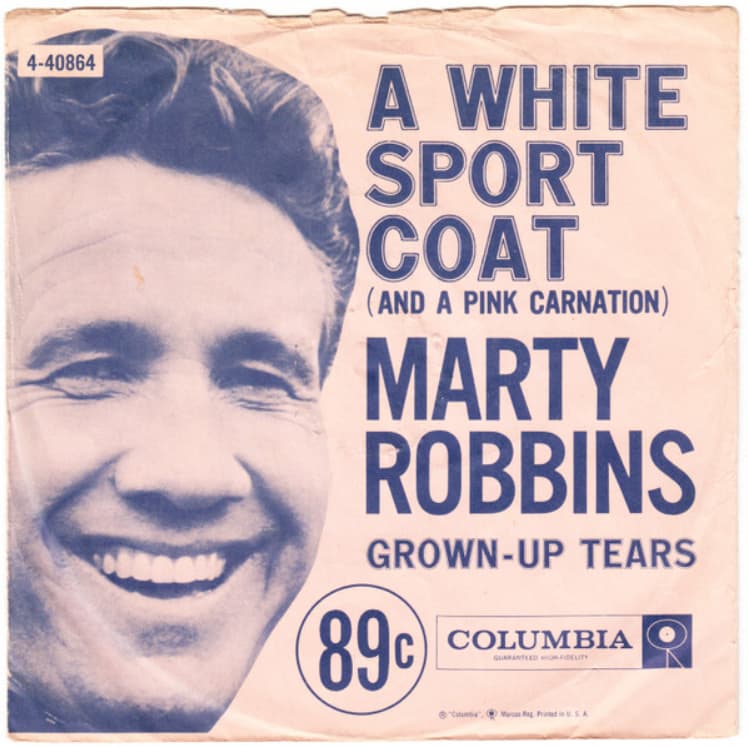
“A White Sport Coat” is a poignant narrative of unrequited love and a formal affair gone awry.
The year was 1957. The air was thick with the scent of Brylcreem and simmering teenage rebellion, yet amidst the burgeoning rock and roll frenzy, a different kind of tune was climbing the charts. Marty Robbins, a name synonymous with country and western storytelling, released a song that would become one of his most enduring classics: “A White Sports Coat (And a Pink Carnation)”. This wasn’t a fiery rock anthem or a soulful ballad of woe; it was a gentle, almost conversational tale that perfectly captured the awkward, heart-wrenching pangs of teenage heartbreak. It’s a song that speaks to anyone who has ever dressed up for a special occasion only to be let down, a universal experience distilled into a three-minute musical vignette.
Released as a single, the song was an instant hit, defying genre boundaries and finding a home on multiple charts. It soared to number 2 on the Billboard Hot 100, a remarkable feat for a country artist at the time, and also reached number 1 on the Billboard Country & Western Singles chart and number 6 on the UK Singles Chart. This cross-genre success wasn’t accidental; the song’s appeal lay in its simple, honest narrative. It was relatable. Who hasn’t felt the sting of a promise broken, the humiliation of being stood up, or the quiet disappointment of a night that was supposed to be magical? The song’s success was a testament to Robbins’s ability to connect with listeners on a deeply personal level. He wasn’t just singing; he was telling your story, your friend’s story, or the story of the kid next door.
The story behind the song is as charming as the tune itself. Marty Robbins was an avid songwriter, known for his ability to craft vivid, detailed narratives. The idea for “A White Sports Coat” came to him while he was driving, and he quickly pulled over to jot down the lyrics on a paper bag. This spontaneous creative burst resulted in a song that feels as effortless as a whispered confession. Robbins’s voice, smooth as aged whiskey, delivers the lyrics with a quiet resignation that makes the listener feel the protagonist’s pain without a single dramatic flourish. He doesn’t wail or rant; he simply states the facts of his disappointment, a man of quiet dignity enduring a moment of public mortification. The song’s instrumentation, with its gentle rhythm and soft backing vocals, adds to this sense of bittersweet nostalgia. It’s not an angry song; it’s a sad one, a lament for a love that never was, a dance that never happened.
The song’s meaning is painted in shades of a forgotten time. It’s about the importance of appearances and the fragility of promises. The white sports coat and pink carnation are more than just clothes; they are symbols of hope, of preparation, and of a future that the singer eagerly anticipated. They represent the effort he put into the evening, the emotional investment he made. When his date doesn’t show up, these symbols of his anticipation become symbols of his humiliation. The bright white and hopeful pink are now a painful contrast to the darkness of his empty evening. It’s a tale that resonates with a certain generation, a time when a simple gesture like a corsage or a specific outfit held immense significance. It evokes memories of high school dances, first dates, and the crushing weight of a teenage heart breaking for the first time. For those who came of age in the 50s and 60s, this song is a time capsule, a melody that can instantly transport them back to a world of innocence, a world where a broken date felt like the end of the world.